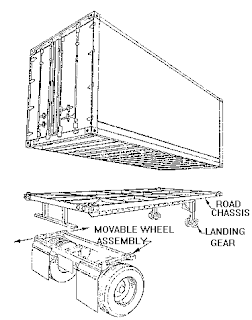Over the last 30 years the global
transit industry has made remarkable progress with development
 |
Subterranean downtown station
on Copenhagen's UTO Metro |
and operation of
fully automated passenger rail systems.
These systems operate with no onboard staff to provide economically
attractive, safe, frequent and efficient urban transport services.
In North America, similar systems
are commonly deployed to support large airport terminal complexes. Elsewhere in the world they are rapidly expanding
as a mechanism to provide general purpose urban transportation. Today, there are 48 lines in 32 cities that
provide Unattended Train Operation (UTO) for general public transport using
trains that carry more than 100 passengers.
Like all heavy rail rapid
transit (Metro) systems the UTO Metros operate on an exclusive guideway with no
highway or pedestrian crossings at grade.
Unlike legacy Metros, the innovative systems use modern technologies to
automatically operate each train including propulsion, brakes, doors and train
spacing. Automated barriers (Platform
Screen Doors) and/or sophisticated intrusion detection systems prevent
passengers and trespassers from entering the train’s guideway space.
Until recently, all of the UTO systems
were new, designed and constructed from the ground up for driverless
operations. But, in the last five years
transport agencies have started to convert some of their oldest lines to
driverless operation. Nuremberg’s U-Bahn
was converted in 2008 and more impressively Paris RATP converted its oldest and
busiest metro line to fully automated operation in 2012. Sao
Paulo Brazil is starting to convert portions of their network to UTO. Paris is hard at work converting a second
legacy line to UTO.
I've prepared that attached draft paper concerning this topic for presentation at ASCE's 3rd International Conference on Urban Public Transportation
Systems to held at the Conservatoire National Des Arts et Métier in Paris later this month.
The paper is based on the
reported experiences of many UTO metros and onsite visits to interview management
operating or building several UTO lines.
It is designed to introduce UTO metro operations to the American public
transit community, highlight the benefits of UTO operation and review the
challenges that must be addressed in building a new UTO line or converting an
existing line to UTO.
Click here to download a copy of the draft paper for review and comment.
 All members and
friends of TRB Subcommittee AP070(1) are cordially invited and encouraged to
attend the annual meeting to be held on Tuesday January 14, 2014 in Washington
DC.
All members and
friends of TRB Subcommittee AP070(1) are cordially invited and encouraged to
attend the annual meeting to be held on Tuesday January 14, 2014 in Washington
DC.















